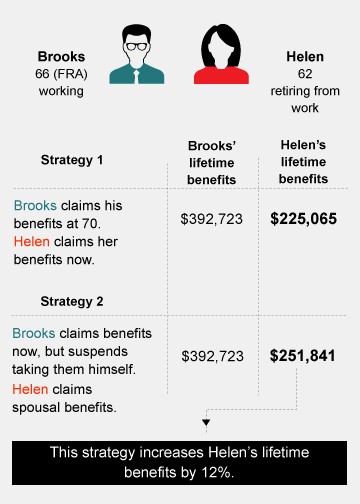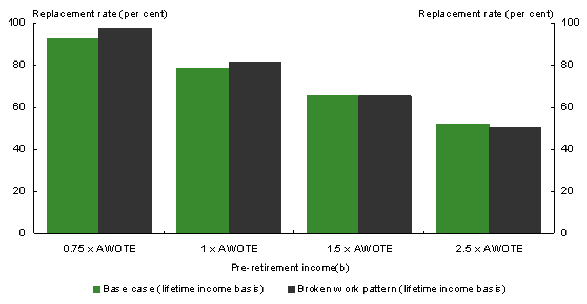Strategies to help top earners maximise their retirement income
Post on: 2 Июнь, 2015 No Comment

Get social
Article utilities
Top-rate taxpayers can usually afford advisers to negotiate their way around the taxation system but often fail to make the most of concessions and strategies to maximise their retirement income, say consultants.
Costly delay
Thats because many postpone planning until salaries peak in the final decades of their working lives, potentially costing them hundreds of thousands in lost concessions.
Deborah Wixted, executive manager of FirstTech (an advisory team within the wealth management advice business of Commonwealth Bank of Australia) says: For most individuals, regularly making concessional [pretax] superannuation contributions from any source super guarantee contributions, additional employer contributions, salary sacrifice or personal deductible [after-tax] contributions if self-employed can be the most effective strategy.
For example, a 30-year-old with $50,000 in super and a salary of $80,000 who annually uses his or her $25,000 annual concessional cap will need contributions of about $270,000 to achieve a $1 million super balance over time.
Someone who waits until 50 will need total contributions of around $505,000.
Golden years
So how does someone between 40 and 55 and earning about $300,000 a year make the most of tax breaks and other incentives to build a retirement nest egg?
Wixted, Anthony Smith (private client adviser at Shadforth Financial Group) and Tim Mackay (a director and senior wealth adviser at Quantum Financial) were asked for their recommendations.
They were also asked how these might be adapted to allow for a spouse and investment portfolio.
All agree that, for most individuals, regular super contributions up to concessional caps (which is the amount that can be put into a plan without losing tax breaks) is the most effective long-term strategy.
Mackay says: They can use their free cash to reduce their mortgage, to top up their super, to invest outside super or a combination of each. What choice is best will depend on individual personal circumstances but the best advice I can give is you should do some, or all of these, to improve your long-term wealth.
Smith warns that caps apply to concessional and non-concessional contributions and going over the limits can result in tax being paid at rates of up to 93 per cent.
Taxable income required
A spouse with no employment income will not be eligible for any super contribution concessions, such as the co-contribution or the new low income earner government super contribution.
Concessional or personal deductible contributions will not be effective without any taxable income against which their tax deduction can be offset, says Wixted.
Alternative strategies can be devised by making contributions from investment portfolios.
Up to $59,000 can be earned in 2012-13 from fully franked dividends without paying any tax on that income. A couple can also make non-concessional (or personal after-tax) contributions of up to $150,000 each a year.
A combination of super and non-super investments can be highly effective in providing opportunity for wealth accumulation across different time horizons, flexibility in accessing capital and deriving income and managing legislative risk, says Wixted, whose team provides information to financial advisers on technical rules and strategies.
If the other spouse is a higher rate taxpayer, then the $25,000 concessional cap remains an effective tax tool.
The mortgage solution

Smith says reducing your home mortgage is another simple yet effective strategy providing a guaranteed return on capital.
Debt against your home is bad debt, says Mackay. It is not tax-deductible and paying it down does not cost anything and involves little risk. It also allows you the ability to redraw should you need to access your funds.
By contrast, investing in or out of your super involves additional risk, increased costs, tax consequences and accessibility issues.
Wixted says many prefer the security of owning their own home before building other wealth.
Investments in super are taxed at a lower rate than outside. But you cannot access the funds until you retire, which might make investing out of super more attractive.
Wixted warns against delaying contributions to take advantage of higher concessional caps in the future. The tax-effective super rate, which is a maximum of 15 per cent tax on investment income and 10 per cent on capital gains, means there is an opportunity cost on delaying investment. Also, the use it, or lose it contribution caps limit the advantages of deferrals.
Do it yourself
Many high earners are also considering self-managed super schemes, which Smith says offer fantastic control and flexibility for astute investors. Many people interested in geared property are also attracted to SMSFs. But beware of the responsibilities, costs and skills needed to stay on top of your strategies, Smith warns.
Advisers typically recommend it to those with more than $500,000 and who have a strong record of managing their own finances.
Follow us on Facebook and Twitter
You can follow Smart Investor on Twitter: https://twitter.com/#!/smartinvestr (or @smartinvestr) and on Facebook at facebook.com/afrsmartinvestor














